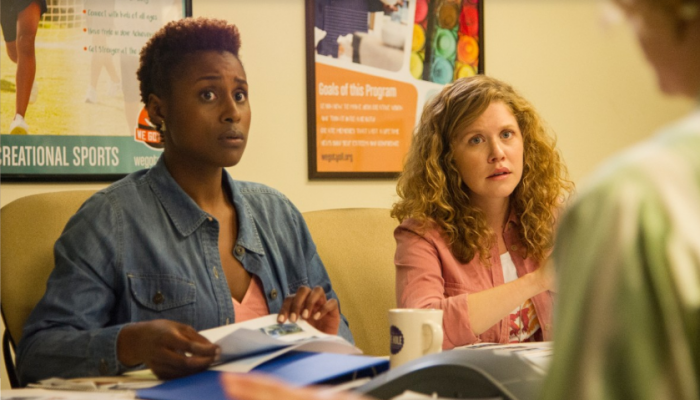My coaching practice is devoted to supporting those with a global vision: people who want to make the greatest possible difference to the best possible future, for humanity and the planet. But there is a refrain that I hear over and over again from every single person I work with.
It goes something like this:
I know that I am at my best when I have enough sleep, when I use the practices that I already know allow me to take good care of myself. I know that I am at my best when I modify my own consciousness in this way.
But I just do not have time.
Many of the people I work with, particularly when we are just getting started, will describe their lives as “crazy busy,” or “total madness right now,” or “Oh my God, there is so much going on right now; it is just insane.” Many people use idioms borrowed from mental illness to describe the way that life gets out of balance.
I have discovered that in the first few months of coaching, the most useful focus is not on the business plan, raising the investment capital, or hiring the right people, but instead on working together to restore the life of the visionary to one of balance, health, and sanity.
There is a little conversation I often go through with busy entrepreneurs. It goes something like this:
“So, I understand that you are very busy.” (I get a nod of agreement.)
“Way too busy to be able to take care of yourself in the way that you would like.” (Again, no argument.)
“I can imagine that when you are this busy, there must be days when you jump out of bed, still in whatever you were wearing to sleep at night, and rush straight out the door to your first meeting without brushing your teeth or your hair, or even changing your clothes or showering.” (Nobody consents to this—not even once.)
“But if you are really busy,” I go on, “how come you always have time for these things? Showering, brushing your teeth, and wearing nice clothes, this is all quite time-consuming.”
“Well,” the answer comes back, “one just has basic standards. It would be offensive to people if I went to my meeting without washing or changing my clothes.”
But actually, not everybody has those same standards. There are people who live on the street, or rickshaw drivers in an Indian city, who do not have the possibility to maintain those standards. For most of the people I work with, we have to start by shifting the “set point” on basic values.
It is true: if you go into a meeting without brushing your teeth, you stand a chance of offending people with the smell of your breath. If you go to a meeting still in your pajamas, without having taken a shower or brushing your hair, you may also offend people. We do not always realize, however, that when we leave the house without adequately preparing our state of consciousness, it can be equally problematic.
Whenever you meet the world feeling rushed, caught up in busy thoughts or reactive emotions, you run the risk of not bringing the best version of yourself. This might result in being a little abrupt with people, being insensitive, or missing what is going on with another person. We often overlook many of the opportunities that arise because of the habit of busyness.
It has been extremely helpful for me—in coaching so many people, both individually and in groups—to recognize that this addiction to being busy at ever-increasing speeds is never personal. It is the ocean in which we are all swimming. It is the very nature of the marketplace to require us to keep coming up with new, and better, and different, faster and faster, to get ahead of the competition.
Our ancestors lived in small towns and villages with a marketplace. It was just one area they could go to, and then leave again. There was also the monastery, the hillsides outside the town, the library, the home, and much more. These days, the marketplace is not a location we step into and then leave again. It has become a state of consciousness which can, unless you are careful, take over absolutely everything.
The best entry point into breaking this ever-increasing cycle of busyness is to reflect upon mistakes. That may be uncomfortable and deflating after living in the dopamine-induced high of overdrive for a while, but it is the most effective way.
At the end of the day or at the end of your week, stop and reflect upon a few things that you regret. These might be small transgressions, like forgetting to thank someone for their contribution, or huge errors, like offending another person in a way that then requires fixing. It could also include ways that you have abused your own body by pushing it too hard. It is a good idea to write down two or three of these errors at the end of each day, and to spend a little longer on this at the end of the week. In the Radical Brilliance Cycle, we call this “6 to 9.” It naturally leads to a place of humility. Then you feel less confident about what your mind is telling you to do. You become softer, more inquisitive, more receptive for help.
From here you can enter into the next phase, which I recommend you do every morning, and perhaps spend a little longer on the weekend. This is to relax into non-doing. If this sounds confusing, you can get lessons from a dog or a cat, or any other animal. Your pets may not have all the same technological skills we do, but they certainly know the capacity to be still and do nothing. The best thing is just to sit and observe the involuntary speed with which thoughts are moving. You will soon start to relax in the direction of spaciousness, of finding quiet within yourself.
Out of this gentle discipline of adding “not doing” to the schedule of your busyness, you will notice a different kind of thought arising. It happens spontaneously, without any effort or pushing. It is the feeling of knowing the right thing to do, without rush but also without resistance. It is from here that all genuinely good ideas arise and come to fruition with ease. Then when you do enter into your day, you will be properly prepared. You will feel confident about what to do and how to do it, and you will find yourself accomplishing much more in less time.
If any of this rings any bells, here are three simple steps you can take to break the addiction to busyness and find you have so much more to contribute:
- Take an hour or two on the weekend to reflect upon what has been most helpful for you in coming home to yourself. I have noticed this is different for different people. Never mind what teachers, books, or traditions have told you. Be a little more empirical—what has really worked for you time and time again?
- Start with a modest practice, focusing on the early hours when you first wake up. Experiment with waking a little earlier than usual to dedicate time to reboot. If possible, ask your partner or a close friend to hold you accountable to do this.
- Once you recognize how much better everything goes when you create this kind of balance in your life—and that you are healthier, make a greater contribution, make more money, and feel better about yourself—think about hiring a coach or a mentor to deepen and stabilize and customize your practice. We all live within the bubble of our own personal and private reality. We are all limited by what we believe to be possible. As soon as you engage with anyone, who is looking from outside the bubble, to focus on your life, the possibility of living from a state of balance, and hence creativity, will become much greater.
~












Read 0 comments and reply